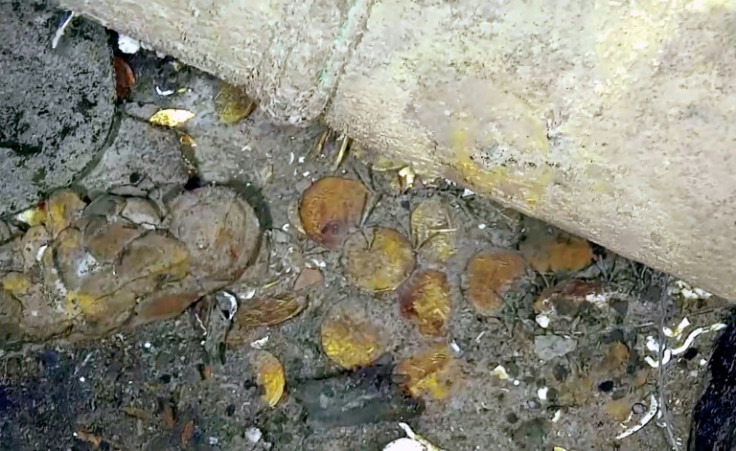
A group of treasure hunters said they recovered over 200 hundred silver coins from an 18th Century shipwreck off the coast of Florida, calling the moment "numbing." "You don't expect that. You always hope for it but you never expect it," boat captain Grant Gitschlag told WOFL-TV.
The coins in question come from a the Lilly May, a ship that was part of a fleet of Spanish galleons taking vast amounts of wealth from The Americas. A powerful hurricane destroyed 11 of the ships on July 1715, sending them to the ocean floor where they remained undiscovered for two centuries. The wreck had been surveyed many times before, making the recent discovery all the more notable.
A company that owns exclusive salvage rights of the fleet celebrated the discovery on social media, calling it the "first treasure of the season." "Just a few days into the 2024 season the crew of the M/V Lilly May (C-69) located a hot spot on one of our sites. So far, they have recovered over 200 silver cobs!" the operation wrote in a statement. "Well done to the Lilly May crew!"

The company calls itself the "largest permitted historic shipwreck salvage operation in Florida waters" and says the state gets up to 20% of all artifacts found on each site to display in museums. An operation from 2015 said it found 350 gold coins worth an estimated $4.5 million.
Just a month ago, Colombian authorities kicked off a similar operation to try to recover the treasure of the colossal San Jose galleon, believed to have held 200 tons of gold coins and which sank off the coast of the country over three centuries ago.
Its location had been kept secret since its discovery in 2015 by the Colombian government, as it is considered one of the most promising economic and archaeological treasures of the nation.
Gustavo Petro's government announced that Colombia will invest more than $4 million (17,962 million Colombian pesos) in the recovery process of what has been dubbed as the "holy grail" of shipwrecks.
The plan will involve strengthening technical capabilities by outfitting a remotely operated vehicle (ROV), setting up a materials conservation laboratory and carrying out scientific and general outreach activities to multiple interested audiences.
The fate of the 316-year-old wreck has taken centerstage in the public conversation, as it is regarded as both an archaeological and economic treasure. The government clarified that the galleon "is an invaluable Cultural Heritage of Colombians that must be managed under the designation of a Protected Archaeological Area at the national level."
The San Jose galleon, under ownership of the Spanish crown, was sunk by the British navy near Cartagena in 1708. It was on its way to deliver treasures such as chests of emeralds and around 200 tons of gold coins to King Philip V of Spain, as documented by accounts from the era.
© 2024 Latin Times. All rights reserved. Do not reproduce without permission.







